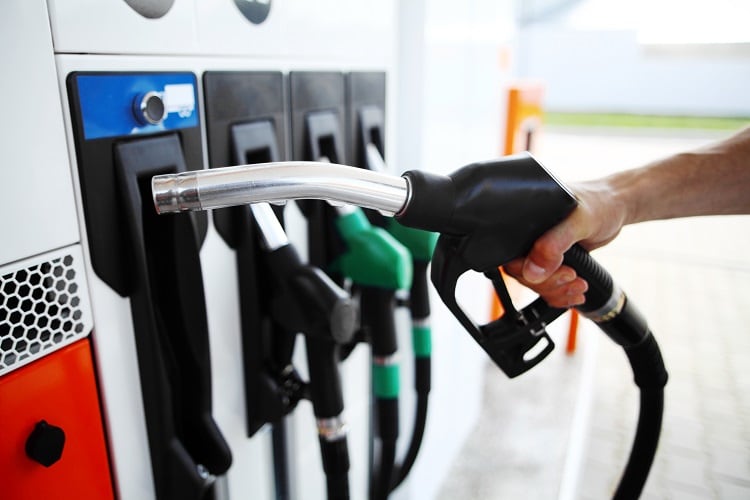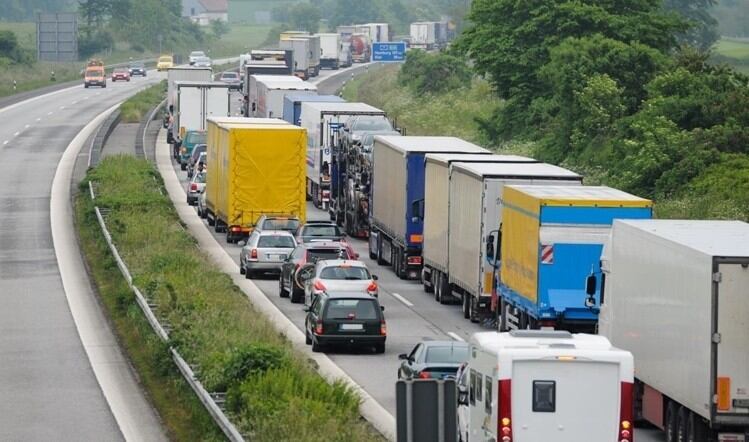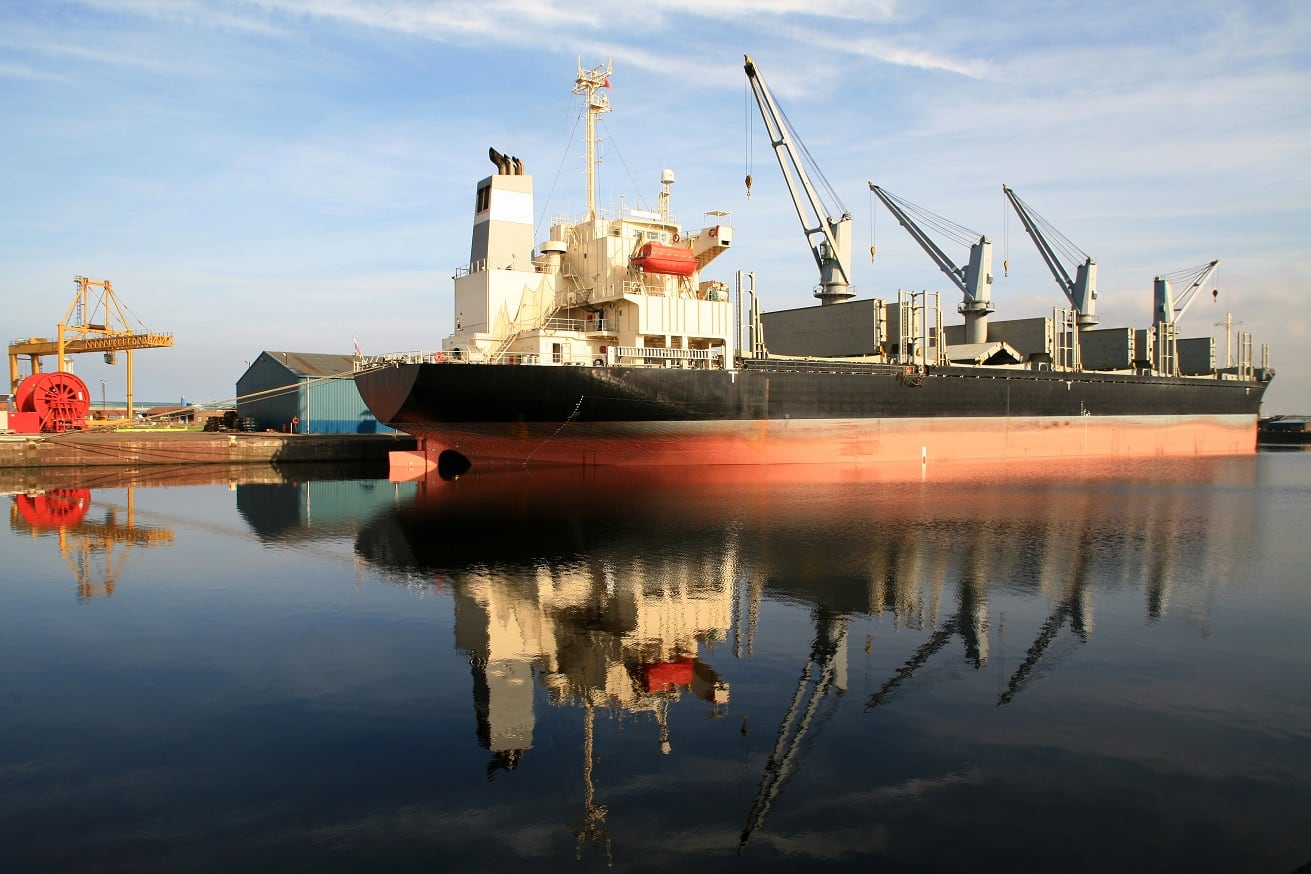According to the Road Haulage Association, the UK is now facing a shortage of up to 100,000 drivers, fuelled by restriction out in place by the COVID-19 pandemic. Drivers returned to their countries of origin during extended periods of lockdown and restricted travel and a majority have yet to return.
This has compounded a shortage that has dogged the sector for years. Commentators point to low pay and gruelling working hours and conditions as other factors that have dissuaded UK workers from going into haulage or sticking with it.
The Government announced a package of measures to ease temporary supply chain pressures in food haulage industries, including an investment of up to £10m to create new skills bootcamps to train up to 3,000 more people to become HGV drivers – an additional 1,000 people are expected to be trained through courses accessed locally and funded by the government’s adult education budget.
Quick access to tests
To help make sure new drivers can be road ready as quickly as possible, the Department for Transport has also agreed to work with Driver and Vehicles Standards Agency to ensure that tests will be available for participants who have completed training courses as soon as possible.
But these measures have been deemed too little, too late by members of the industry. As Federation of Wholesale Distributors chief executive James Bielby pointed out, it doesn’t ease concerns about food distribution with Christmas on the horizon.
“An extra 5,000 HGV drivers might just do enough to reduce the gaps on supermarket shelves, or keep the forecourts open, but it won’t do much to reassure hundreds of thousands of restaurants, pubs and shops who are wondering what kind of Christmas they are going to be able to offer their customers,” said Bielby.
“We have been pressing the Government for months to introduce temporary visas to bring in skilled EU workers until the UK is able to recruit, train, test and properly reward a new generation of HGV drivers. Had they listened and acted earlier, they could have avoided the PR disaster of panic at the petrol pumps in every newspaper and TV channel.”
The fuel shortage
It would be remiss to not mention the recent fuel shortage that has thrown the UK into chaos over the past two weeks. While many directly involved in the logistics of the supply chain have yet to see a dramatic impact as a result of this latest crisis on the macro level, the cracks begin to make themselves apparent when you drill down on the detail.
As the British Meat Processors Association highlights, a lack of petrol can result in a worker being unable to get to work. With each worker unable to make the trip – be that to a factory or to a warehouse servicing the food and drink supply chain – you got one step closer to a shift not running and production shutting down.
Of course, some argument can be made that the crisis was fuelled by reporting by the press, which in turn riled up the masses and sparked the desperate wave of panic buying and mile long queues to the forecourt.
An end to fuel duty
With consumers more conscious of the impact their food has on the environment and increased pressure from the Government for supply chains to be greener and more sustainable, logistics firms have been exploring how to cut down their carbon emissions.

One route being explored by the industry is to transition vehicles to alternative fuels, but the cost of doing so could be crippling for businesses, as Logistics UK chief executive David Wells explained.
With the logistics industry still trying to recovers from the impact of the pandemic on the economy and with the threat of price inflation on the horizon, every penny counts for a sector which traditionally runs on extremely narrow margins, said Wells.
“While our members are committed to switching to cleaner alternative fuels from diesel, the cost of a new alternatively fuelled HGV makes them challenging for many businesses – despite government grants of up to £25,000 – when, at present, businesses must allow for higher operating costs, leaving less spare cash for investment.
Switching to alternative fuels
“Our industry is fully behind the switch to alternative fuels but, in order to do so, needs a confirmation from government that fuel duty will not be used as a tool to close budgetary gaps in the economy. This will help our member businesses to allocate more funds to the vehicle replacement cycle, secure in the knowledge that they will not be surprised by unexpected duty hikes in the coming months or years.”
Diesel is one of the single biggest running costs in operating a large fleet of HGVs – research by Logistics found that fuel accounted for more than 30% of HGV’s operating costs. This, coupled with increased costs due to spiralling drivers’ wages caused by the current skills shortage, meant finances for businesses recovering from the impact of COVID-19 were very fragile.
“With margins pared down to a minimum, and inflationary pressure set to bite over the autumn, a guaranteed, permanent freeze on fuel duty would allow our members to recover from the impact of the pandemic and start to focus on how best to make the switch to alternative fuels on the road to Net Zero,” Wells concluded.
The director of food and sustainability at the British Retail Consortium, Andrew Opie, was quick to praise the efforts of retailers working to minimise the damage, noting there was plenty of fuel to go around.
He did however turn the blame back on to the HGV driver shortage, thus completing the circle of disruption that has been plaguing the UK for months now.
Christmas calls for greater collaboration
This was a message echoed by SCALA executive director Rob Wright: “Even if the crisis should be resolved in the short term, Christmas is going to be challenging, being a time when both new drivers and vehicles are required to service all the extra demand in the build-up to the festive period.”
Wright called for greater collaboration across sectors to help optimise UK transport to reduce demand on drivers and minimise trucks and carbon emissions.
“Companies should be talking to their customers and suppliers about how transport can be optimised to protect service and reduce truck and driver journeys,” he added. “Now is the time to review delivery frequency and order size, unlock backhaul opportunities and remove empty trucks from UK roads.
“We have found it is often the case that a company’s best collaborative partner is perhaps its competitor, as they face the same challenges, share the same customers and often the same suppliers.
“In addition, businesses need to be re-assessing their fleets, for example, more companies can make use of double deck trailers significantly increasing the number of pallets that can be carried in each shipment and subsequently reducing the number of trucks required.”
Data helps firms to adapt
Data was once again a hot topic among members of the industry. As demonstrated in the past in all sectors of the food and drink industry, having up to date data allows businesses to adapt to desperate situations with less complications. However, the issue is how manufacturers and supply chain manager gain access to this data.
“The speed at which the escalation of this fuel crisis has occurred requires continuous end-to-end assessment, optimisation and monitoring,” explained Mark Lumsdon Taylor, partner at business consultancy MHA.
“Companies need to respond rapidly and confidently to shape and execute a short-term tactical plan that will mitigate the risks to food security in the UK and protect the functioning of global supply chains.
“To do this, they need to have access to proper data and analytics capabilities as these are crucial in understanding the complexity of supply chains, anticipating potential disruption, and quickly developing an immediate response.
“Segments of the food supply chain, such as the major multiples use their data exceptionally well, however other sectors are not as advanced, including parts of downstream supply and transport. We need a new approach and we need to invest in data.”
Avoid outdated methods such as stockpiling
He suggested ‘thinking outside of the box’ and working collectively as an industry to help future proof the UK supply chain and avoid trying to paper over the cracks with outdated methods such as stockpiling.
“We need to get to the route cause to learn and avoid making the same mistakes time after time,” Taylor concluded.
The call for data most directly translates to greater visibility along the supply chain. More often than not, managing a successful supply chain can be made easier by knowing where your products are – and the condition they are in – at every point in the chain.
Coca-Cola Hellenic Bottling Company
Coca-Cola Hellenic Bottling Company (HBC) was aware of this challenge and decided to call in supply chain systems provider Shippeo to help manage its complex global operation.
According to Shippeo, which transports over 400,000 full truckloads to customers each year, the scale, diversity of countries and complexity of Coca-Cola HBC’s operation created a large administrative effort to coordinate with transport carriers.
This in turn made handling exceptions time-consuming. Ultimately, a lack of visibility of deliveries for recipients and customers affected the potential to improve operational efficiency and customer satisfaction, while administrative teams found themselves frequently occupied with non-value adding tasks.
Shippeo’s solution was a platform that uses machine learning to calculate accurate estimated times of arrival and other delivery statuses, which are then communicated automatically in real-time among Coca-Cola HBC’s suppliers and customers. This ultimately led to greater alignment and a reduction in customer enquiries for admin teams.
This in turn freed up teams to leverage data analytics to improve service levels and capture productivity gains.
AI & automation
The next step is to consider the role that Artificial intelligence (AI) and automation plays in the running of food and drink supply chains.
In a world where teams have become significantly reduced due to the COVID-19 pandemic, automation has gone some way to ensuring that teams with smaller headcounts can stay productive and maintain the product throughput required to meet rapidly climbing demand, according to Schoeller Allibert UK’s Jon Walkington.
“We tend to see technology of this sort as a way to boost productivity and output to the next level but what we have witnessed over the last year is that digital technologies can be essential in a protective capacity, too,” said Walkington.
Through the use of these new technologies, the food and drink supply chain can maintain the rapid pace required to feed the nation, while still providing a level of transparency that has now become a high demand for consumers.
Tighter grip of supply chain
“A tighter grip of the supply chain means always knowing where each component and asset is, where it’s going, and how long it’s been at a certain stage, as well as having total control of critical control points such as temperature and pressure,” Walkington added.
“As global ingredient sourcing intensifies, it’s an essential part of food processing that inbound ingredients can be tracked through the journey, and that this data is stored and updated in real time.
“Similarly, automation and better use of data can create safer working conditions through monitoring equipment condition, automatically flagging up required maintenance and keeping supply chains moving.”
Recouping costs: Force Majeure
While the Government continues to mull over the future of the HGV workforce and supply chains struggle to cope with the limited resources at their disposal, the question around how businesses can deal with this unprecedented disruption still remains.
The HGV driver shortage could well be the final nail in the coffin for some food and drink businesses, who have been unable to fulfil orders for their customers – it’s all well and good producing enough product, but it end up being for nought if that product can’t leave the factory.
If a lack of haulage capacity causes your businesses to be late in delivering orders, or failing to perform your contractual obligations completely, it may be possible to rely on force majeure to avoid liability.
Four steps for scrutinising supply contracts
Law firm Womble Bond Dickinson laid out four steps to assess whether or not your supply contracts have clauses that will help in these trying times.
1. First, check whether you actually have a binding contract with a customer to supply goods. You may have binding ongoing supply commitments to some customers, whereas other customers simply place ad hoc orders from time to time (which you can accept or reject at your discretion). Prioritise servicing your binding contractual commitments, and consider declining ad hoc orders in order to manage your capacity to supply.
2. Where you have binding contracts, the next step is to understand whether those contracts contain fixed delivery/performance dates, or whether delivery/performance dates are estimates only. The latter is obviously preferable given the current difficulties. Consider changing your standard terms now to ensure that delivery/performance dates for all future orders are estimates only.
3. If you have a binding contract with firm delivery/performance dates, check whether that contract contains a force majeure clause and whether shortage of haulage availability falls within the scope of that clause. If it doesn’t, then you are unlikely to be entitled to any legal protection from customer claims arising from your late delivery or non-performance, because English law does not provide any default force majeure protection. The protection is either in the contract or it's not.
4. Finally, even if a driver shortage falls within the contractual definition of a force majeure event, it must be the operative cause of the delay or non-performance (i.e. it must make it impossible not just more expensive to perform) before the clause can be relied upon.





